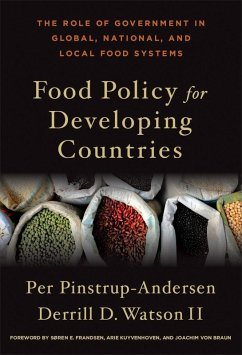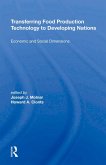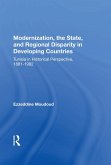Despite technological advances in agriculture, nearly a billion people around the world still suffer from hunger and poor nutrition while a billion are overweight or obese. This imbalance highlights the need not only to focus on food production but also to implement successful food policies. In this new textbook intended to be used with the three volumes of Case Studies in Food Policy for Developing Countries (also from Cornell), the 2001 World Food Prize laureate Per Pinstrup-Andersen and his colleague Derrill D. Watson II analyze international food policies and discuss how such policies can and must address the many complex challenges that lie ahead in view of continued poverty, globalization, climate change, food price volatility, natural resource degradation, demographic and dietary transitions, and increasing interests in local and organic food production.
Food Policy for Developing Countries offers a "social entrepreneurship" approach to food policy analysis. Calling on a wide variety of disciplines including economics, nutrition, sociology, anthropology, environmental science, medicine, and geography, the authors show how all elements in the food system function together.
Food Policy for Developing Countries offers a "social entrepreneurship" approach to food policy analysis. Calling on a wide variety of disciplines including economics, nutrition, sociology, anthropology, environmental science, medicine, and geography, the authors show how all elements in the food system function together.
Dieser Download kann aus rechtlichen Gründen nur mit Rechnungsadresse in A, D ausgeliefert werden.









